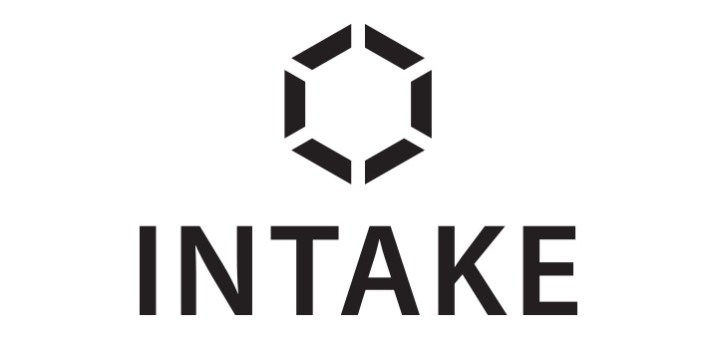The world’s population is expected to reach 9 billion by 2050. Therefore it is crucial to create new and innovative ideas to transform the food and beverage industry. There are some great Korean startups in the Food and Beverage industry. Many were started by intelligent and motivated young entrepreneurs in Korea with great ideas and strong passion. Since this market changes quickly, Korean food and beverage industry startups can adapt to customer needs much faster than big corporations. Furthermore, with the rise of social media, it is easier than ever to get the average consumer’s attention, especially in Korea.
There is also a rise in support from Korean accelerators and incubators to help Korean startups in the food and beverage industry. The most successful is a food delivery platform/app called Baedal Minjok, which Woowa Brothers operate. They have become the latest Korean startup “Unicorn,” having a valuation of over $1 billion. In addition, online food-related services in Korea have expanded sharply in recent years. Of all online transactions, 9% were food delivery transactions.
It is still very difficult to launch and grow a successful food or beverage business, but the barriers have never been lower. Therefore, which Korean startup has the potential to be the next Baedal Minjok? While there are many successful startups in the food industry, such as Yogiyo, Shuttle, and Foodfly, for this list, we will focus on some of the more innovative Korean startups that are bringing something new to the food and beverage space.
Innovative Korean Startups in the Food and Beverage Industry
FreshEasy
 The top Food startup in Korea is FreshEasy. It is the BlueApron of Korea. As more people stay home due to COVID-19, FreshEasy has seen a huge jump in subscriptions. FreshEasy is a home meal replacement company that offers meal kits for consumers to cook at home. Each kit contains all the needed ingredients, sauces, and instructions on how to cook them. They supply their meal kits to online eCommerce sites like Coupang and GS Home Shopping and offline supermarket chains like Emart. They have seen their value skyrocket due to the demand for meal kits amid the COVID-19 pandemic.
The top Food startup in Korea is FreshEasy. It is the BlueApron of Korea. As more people stay home due to COVID-19, FreshEasy has seen a huge jump in subscriptions. FreshEasy is a home meal replacement company that offers meal kits for consumers to cook at home. Each kit contains all the needed ingredients, sauces, and instructions on how to cook them. They supply their meal kits to online eCommerce sites like Coupang and GS Home Shopping and offline supermarket chains like Emart. They have seen their value skyrocket due to the demand for meal kits amid the COVID-19 pandemic.
To date, FreshEasy has raised over $140 million, with most of the investment coming from SoftBank Ventures.
NowBusking – NowWaiting

Korean tech startup NowWaiting by NowBusking has focused on leveraging mobile technology for offline venues and bringing unprecedented value. They help restaurants streamline operations, increase sales, and gain business insight.
Their most representative service is NowWaiting, a service for restaurants, banks, amusement parks, or anywhere where customers must wait in line. It’s a great service for restaurants because customers just need to input their phone number on a tablet, which will be placed at the front of the restaurant. After that, they won’t need to wait in line and will be alerted once they are close to being seated. Therefore, this allows customers to shop or do other activities. Cumulative users of the solution currently stand at over 18 million.
Investment from Yanolja
NowBusking got an investment from Korea’s top accommodation booking platform Yanolja. Yanolja’s vision is to have a one-stop service for all leisure activities that range from booking to waiting and placing an order.
NowBusking has over 18 million users for the mobile booking platform at over 2,600 businesses. Nowbusking has raised over $6 million in funding from Korean VC capital firms. Their focus in 2023 will be to expand their business to a comprehensive restaurant management platform.
“We have saved over 250 years of waiting time in total for our customers. With our data, we analyze hours of use, the purpose of visit, and also find other online and offline business opportunities.
Kabrew
 The craft brewery market has been booming in South Korea since the Korean government eased liquor-related regulations. Craft brewery restaurants are popping up all across Seoul now that small-sized craft brewers can mass produce their products in a can by consigning manufacturing to large facilities. Kabrew is the top local craft beer maker. They have more than 100 small-scale breweries in Korea. They have increased production by cooperating with bigger partners in Korea.
The craft brewery market has been booming in South Korea since the Korean government eased liquor-related regulations. Craft brewery restaurants are popping up all across Seoul now that small-sized craft brewers can mass produce their products in a can by consigning manufacturing to large facilities. Kabrew is the top local craft beer maker. They have more than 100 small-scale breweries in Korea. They have increased production by cooperating with bigger partners in Korea.
Kabrew has raised $5.3 million for its Series B round from Kolon Investment, Samsung Securities, Korea Investment & Securities, and Midas DongA Investment. They will use the funds for their 4th brewery facility, which will grow their yearly production to 3.8 million cans annually.
INTAKE
 Korean food manufacturing startup INTAKE focuses on healthy foods and meal replacements. They have a line of healthy snacks, meals, and drinks. In addition, they also have the biggest food information portal in Korea called FoodB2B. Furthermore, they sell their products at many convenience stores in Korea and e-commerce channels. Their top 3 sellers are:
Korean food manufacturing startup INTAKE focuses on healthy foods and meal replacements. They have a line of healthy snacks, meals, and drinks. In addition, they also have the biggest food information portal in Korea called FoodB2B. Furthermore, they sell their products at many convenience stores in Korea and e-commerce channels. Their top 3 sellers are:
- Morning Jook – porridge
- Meals – multigrain shake
- Dr. Nuts – mixed nuts snack.
They reached over $15 million in sales in 2021. In addition, INTAKE has gotten over $3 million in funding from its latest round. COVID-19 has not slowed down its business as more and more consumers in Korea are looking online for their food/beverage purchases. For the rest of 2023, they will focus on new product development and growing distribution networks.
“We will grow into an innovative food company through developing products that satisfy tastes, nutrition, and convenience. We are planning to introduce various products this year that focus on convenience food, healthy product, and snacks category,” said CEO of INTAKE, Han Nok-yeob.
Devotion Foods

Devotion Foods is a Korean startup that develops alternative vegetable-based meat. They develop plant-based substitute meat that has zero cholesterol, is high in protein, and is low in calories. Their meat is made with grains and natural additives and has more protein than beef. Two chefs developed the technology from Michelin-star restaurants through 18 months of research. Their vegetable-based meat will go a long way in solving the environmental pollution problems caused by the livestock industry.
The food-tech startup has raised $2.6 million for its Series A round from Kakao Investment. Devotion Foods will use the funds to establish its R&D lab and upgrade its current manufacturing facility. Their first commercial product was released in 2021.
“We started Devotion Foods with the desire to present delicious moments to people and to contribute to society with sustainable food. With our commitment to creating safe and healthy foods for future generations, we will achieve our vision of expanding beyond the domestic market and go overseas,” said the CEO of Devotion Foods, Hyungsoo Park.
The PlantEat Inc.

Korean Food tech Startup PlantEat researches and develops alternative food products. They are the fastest-growing R&D-focused food technology startup in Korea. They focus on producing data-based plant materials. Their brand Eat’s Better aims to solve the modern global malnutrition problem through its healthier, tastier, and sustainable plant-based products. Furthermore, all their products are vegan certified by the UK vegetarian society, and they are looking to make a social impact in Korea through their healthy food alternatives.
PlantEat has already created a pure vegetable mayonnaise made from Korean black beans and soy milk instead of eggs. In addition, they got over $2 million in funding from Stone Bridge Ventures, Lotte Accelerator, and Future Play. Their focus for 2023 will be on finding sustainable meat substitutes. Recently they signed a business agreement with Korean Agriculture Tech Company EzFarm to develop technology for growing plant foods and natural ingredients that can replace meat. Therefore, expect to see plant-based meat products in South Korea in 2023!
“We will continue to develop a platform to replace not only eggs, but also milk and meant, and increase the number of raw materials and products for meat,” said CEO of The PlantEat, Yang Jae-sik.
Medipresso

Medipresso is a food-tech startup that makes Korean herbal tea capsules for Nespresso Coffee Machines. The startup has tea sommeliers and herbal medicine practitioners that source premium herbal ingredients from various countries. The tea is roasted and packaged in Korea. It is similar to Nespresso capsules, vacuum-sealed into single-use drip capsules. However, Medipresso offers a variety of tea alternatives. Currently, Medipresso offers nine unique tea blends that also contain medicinal benefits. Therefore, Medipresso offers an alternative for those that don’t drink coffee. The startup has raised $1.5 million from Dongmoon Partners, SBC, and Kyowon Invest.
Nuvilab

Nuvilab is a food data analysis startup that uses AI technology to analyze food images. The food scanner uses deep learning technology to distinguish foods based on thousands of images. In addition, it also estimates the volume of food still left on the plate. Nuvilab has stated that its scanners and sensors can detect and analyze leftover food with over 95% accuracy. Their service currently operates in school cafeterias, military mess halls, and a few government agencies. They have received funding from Naver D2 Startup Factory, Capstone Partners, and Korea Investment Partners, just to name a few. Their aim for 2022 is to secure $7 million in sales and are expecting over $80 million in sales by 2024.
Avokado Lab

Korean startup Avokado Lab specializes in robotic kitchen automation and AI technology to revolutionize the restaurant industry. Their robotic system will offer customers higher quality food at an affordable price. Currently, their focus is on restaurants, but they aim to innovate the whole end-to-end process from growing ingredients to user consumption. They were able to get seed investment from Springcamp, a venture capital subsidiary of Naver Corp. In addition, they were able to raise funding from FuturePlay.
“Our vision is to create a better eating experience with technology. Our current focus is on automating processes within a restaurant, but we envision to innovate the whole end-to-end process from growing ingredients to user consumption,” said CEO of Avokado Lab, Benjin Kim.
WeCook – Simple Project

Korean shared kitchen startup WeCook rents out space with culinary equipment for restaurants and entrepreneurs. The shared kitchen is called WeCook. It is Korea’s first shared kitchen. It is a great place for home meal replacement and food delivery startups in Korea. In addition, it is great for R&D for major corporations like Lotte Hotel and Lotte Super. Simple Project was a part of Lotte Accelerator and got funding of $1.3 million from them.
“With the food-related market being fragmented, it has been difficult for the industry to achieve economies of scale. With shared kitchens, we can create a community that can eventually contribute to creating economies of scale as we can share food supplies, equipment, and logistics. Demand for shared kitchens continues to rise,” said CEO of WeCook, Kim Ki-woong.
HONORABLE MENTION
Offermeal

Offermeal is a lunch pickup service in Korea that allows pre-orders by specifying the menu and the pick up time in advance. Their menu offers users an average 15-20% discount. They offer Offermal Spot, which allows users to pick up the ordered food at major locations without going to the restaurant. They aim to become a leader in the pickup service market in the contactless era. This is perfect for Korean workers who want to have lunch at the right time at an affordable price. Offermeal attracted seed investment from NH Investment & Securities.
The Satellite Brewing Company
 Korean craft beer brewery startup The Satellite Brewing Company supplies craft beers for over 100 pubs and restaurants in Seoul. Some of their most popular craft beers are the Denali Pale Ale (Citrus), Mangoya (Mango), and Would You IPA (Tropical Fruit). They also have chocolate and coffee-flavored craft beer. They sold over $1 million in 2020. There are currently over 100 local craft breweries in Korea. That number will grow as the Korean government lowers tax rates on domestic beer brands and the demand for craft beers continues to grow. Their plans for 2023 will be to find new investors and grow their facilities. So far they have raised $420,000 from their Series A round.
Korean craft beer brewery startup The Satellite Brewing Company supplies craft beers for over 100 pubs and restaurants in Seoul. Some of their most popular craft beers are the Denali Pale Ale (Citrus), Mangoya (Mango), and Would You IPA (Tropical Fruit). They also have chocolate and coffee-flavored craft beer. They sold over $1 million in 2020. There are currently over 100 local craft breweries in Korea. That number will grow as the Korean government lowers tax rates on domestic beer brands and the demand for craft beers continues to grow. Their plans for 2023 will be to find new investors and grow their facilities. So far they have raised $420,000 from their Series A round.
“US Partners taught us some technical stuff like finding a rice balance between hops and malts. Consistency in quality is a key factor as customers begin to have doubts if the taste changes frequently,” said CEO of The Satellite Brewing Company, Jeon Dong-keun.
DINING CODE

Dining Code is a search engine for restaurants in Korea. They focus on authentic reviews for each restaurant made by real customers. Therefore they have been developing a database for users to enjoy better restaurant recommendations. They are even able to filter out blog reviews that are written for advertisement purposes. Furthermore, every reference is meticulously measured, and after that, they filter out information that is not authentic. Users are rewarded with points if they leave an honest review on Dining Code. In addition, the restaurants are rated by taste, price, and service. They are looking to fix the many issues raised by YELP users who constantly find fake or bot reviews for many restaurants.
Plating
 Korean startup Plating offers a variety of services from pre-made premium lunch boxes for companies and a customized catering service. Plating is great for companies in Korea that want to save time during lunch hours. On average, companies save 35 minutes a day for lunch breaks. In addition, companies can keep track of their orders through Plating’s Plating Manager Page. Furthermore, for those that get the premium service, Plating offers “special day” meals for Chuzeok, company anniversaries, etc. Make sure to take advantage of Plating’s Diet Curator which will provide optimized solutions based on customers’ needs and tendencies. Moreover, customers can choose between a weekly or monthly plan. Their focus for 2021 will be on menu development, ingredients sourcing, cooking, and delivery for the perfect customer experience.
Korean startup Plating offers a variety of services from pre-made premium lunch boxes for companies and a customized catering service. Plating is great for companies in Korea that want to save time during lunch hours. On average, companies save 35 minutes a day for lunch breaks. In addition, companies can keep track of their orders through Plating’s Plating Manager Page. Furthermore, for those that get the premium service, Plating offers “special day” meals for Chuzeok, company anniversaries, etc. Make sure to take advantage of Plating’s Diet Curator which will provide optimized solutions based on customers’ needs and tendencies. Moreover, customers can choose between a weekly or monthly plan. Their focus for 2021 will be on menu development, ingredients sourcing, cooking, and delivery for the perfect customer experience.
Freshcode
 Korean food delivery startup Freshcode delivers salad to customers in Seoul through its innovative shared delivery system. They deliver to spots where there are a certain number of customers. Furthermore, Freshcode has a kitchen where they make salads. They produce around 2,000 salads a day. Then they are delivered to over 300 Freshcode spots where customers pick them up. In addition, orders placed before 9:30 am can be picked up that same day for lunch. Currently, over 70% of their customers are female. Their focus in 2023 will be to expand outside of Seoul to cities like Busan.
Korean food delivery startup Freshcode delivers salad to customers in Seoul through its innovative shared delivery system. They deliver to spots where there are a certain number of customers. Furthermore, Freshcode has a kitchen where they make salads. They produce around 2,000 salads a day. Then they are delivered to over 300 Freshcode spots where customers pick them up. In addition, orders placed before 9:30 am can be picked up that same day for lunch. Currently, over 70% of their customers are female. Their focus in 2023 will be to expand outside of Seoul to cities like Busan.
“We are not a food company, we are an IT firm. That is why we came up with the name Freshcode, a combination of fresh, as in eating fresh, and code, as in computer code,” said Co-Founder of Freshcode, Regina Yoo.
ALTDIF

Korean Tea & Lifestyle brand ALTDIF offers a wide selection of blended teas and tea perfumes. Some of their teas include Bang Show, Royal Milk Tea, Cup Milk Tea, and Chocolate Squeezer. Moreover, their site offers a wide range of recipes to create very creative tea drinks. Check out their location and reserve a lesson on teas at the ALTDIF Tea Bar. There can only be a maximum of 7 people at the same time. In addition, the course comes with simple tea food and varies from 10,000 won to 20,000 won depending on the drinks and alcohol. Seoulz recommends the Season 5 course, which changes depending on the season.
Brewguru
 Brewguru is a Kombucha brand that is looking to bring the Kombucha craze to Korea. The last decade has made kombucha an influential player in the global beverage economy; however, it has not yet impacted Korea. Furthermore, according to a report by Acumen Research and Consulting, the global market size is expected to hit $6 billion by 2026. Kombucha is a fermented tea drink that is made by adding yeast and a culture of bacteria to a mixture of black or green tea. In addition, sugar is added along with different kinds of flavors. Brewguru offers original, lemon, and Omija, just to name a few. Koreans can now go online and have Kombucha delivered to their homes.
Brewguru is a Kombucha brand that is looking to bring the Kombucha craze to Korea. The last decade has made kombucha an influential player in the global beverage economy; however, it has not yet impacted Korea. Furthermore, according to a report by Acumen Research and Consulting, the global market size is expected to hit $6 billion by 2026. Kombucha is a fermented tea drink that is made by adding yeast and a culture of bacteria to a mixture of black or green tea. In addition, sugar is added along with different kinds of flavors. Brewguru offers original, lemon, and Omija, just to name a few. Koreans can now go online and have Kombucha delivered to their homes.
“We hope Brewguru becomes a good example of a startup founded by MBA graduates in Korea,” said CEO of Brewguru, Park Sang-jae.
Popular
Related Posts
Korean Proptech startups Focusing on the Construction Industry
February 13, 2024
Top Trending Korean Social Media Startups to Watch For
October 25, 2023






